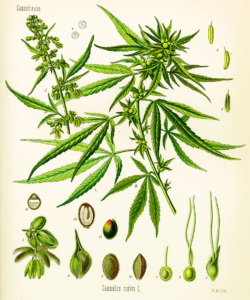Do you like getting high sometimes? Do you like writing? Have you always suspected that these two activities would go really well together but didn’t know how?
Well, here’s how.
I’m going to share my favorite buds to write with and also leave you with some tips on how to find your own favorite.
For the purpose of clarity, assume that you will be consuming dried cannabis flower. If smoking or vaping dried flower is not possible or desirable for you, there will be more near the end about edibles, oils, etc. But for now, continue as though smoking isn’t a problem for you. Not all strains are available in forms besides dried flower. The industry is still young. And still, disappointingly, subject to prohibition laws in some places.
If you’re new to cannabis, it can be hard to know where to begin. Same if you’re new to buying legal weed. In like, a store.
Some of us have spent years consulting little more than a “˜field’ or a ‘dealer‘; neither of whom care whether they’re giving you indica, sativa, or a hybrid.
Broadly speaking: indica gives you a “˜body-high’ and sativa a “˜brain-high’. You might assume that since writing is a creative activity, you’d always be looking for sativa. But don’t sleep on indica. Remember: you will be physically using your body to write your story. We haven’t evolved into a singularity yet.
My preferred strains for a solid, two-hour writing session in the morning or afternoon are all hybrids. My favorite two are Jack Haze and Mac-1.
Jack Haze is more sativa-tending and Mac-1 is more indica-tending. Jack Haze is available from 7 Acres, which is an easy to find brand.
Mac-1 was bred by Capulator’s Cut and is only available to companies that meet their conditions for cultivation. The easiest way to find a store selling Mac-1 in your area is to use Leafly. The Mac-1 I smoke is by Edison.
Both strains provide an uplifting, energetic boost, propelling you through ultra-clear thoughts as though you’re taking the greatest shower you’ve ever had. If your brain is bushed from storming for your WIP, it will suddenly alight with suggestions. 
However Mac-1 also has more of the physical effects you might look for in an indica. This can be helpful if one of your writing barriers is anxiety.
The Science is still catching up to the generations of wisdom from the consumers on this, but I believe indica targets more of the body’s CB2 cannabinoid receptors. CB2 receptors are abundant in the gastrointestinal tract.
With indica, the effects on the vagus nerve in our tummies is immediate. And anxiety treats our vagus nerve like a punching bag.
My favorite straight-up anti-anxiety strain is Sensi Star, which is widely available. I’ve had the 7 Acres and Spinach brand Sensi Stars and they’re both great. If I’m having more anxiety than usual, I might sprinkle a bit in with my Jack Haze or Mac-1.
If physical pain is a barrier for you, I recommend a more potent indica such as I.C.C. (aka Ice Cream Cake), or Wappa 49. I also recommend you see a medical professional and look into medical cannabis.
If neither anxiety nor pain are a barrier to you, and you’re someone who would be too easily distracted by, for instance, how good it feels to wiggle your toes right now, you might do better with a sativa. Your CB1 receptors are most abundant in our brains and Cannabis sativa aims right for them. There are literally too many good sativas to recommend. The easiest thing would be just to try them all. 
Keep in mind that brainy sativas are more likely to give you paranoia. If you suspect paranoia would be a writing barrier for you, choose a low THC% strain, or a strain with a more balanced ratio of THC:CBD, or avoid sativa altogether.
If you don’t like to smoke but still want to give writing with cannabis a try, edibles and edible oil are a nice way to go. A cheap way to explore this is to buy an indica oil, a sativa oil, a CBD oil, and find a combination that works best for you. The cheapest brand I’ve found anywhere is Soleil.
If you’ve never taken edibles before, you need to approach with caution. Smoking gives you the peak of a high immediately. Whereas with edibles, you will be high for 2-4 hours before you even reach the peak. And you will be stuck at that peak for another couple of hours.
And some effects of a dried flower will be heightened. Indicas will have your skin feeling tingly for longer. And sativa will give you a prolonged change in your perception of time.
For some, 8 hours is too long a time for time not to exist. For me, it’s perfect.
If you find a strain you like in dried flower like but don’t like smoking, and you also perchance enjoy baking, you can get a butter infusion kit. A homemade cookie is actually my favorite way to consume.
Finally, take your time. And don’t be intimidated by all the choices and the jargon. Not all weed jargon is necessary to enjoying weed.
Don’t worry about “˜terpenes’, ‘tasting notes’, or any of that. That’s just pothead stuff. And potheads like me fetishize pot. How it smells or tastes has no bearing on how it makes you feel. Or in any case, the causal links are too acute for beginners””or even some seasoned potheads””to discern.
As a final note, I just want to add that if your area is still under prohibition laws, or if it only recently became legalized, please consider donating to a local marijuana legal defense fund. No one on Earth should be serving a prison term for cannabis.
 Derek Nason lives and writes in Saint John, New Brunswick, Canada, where he owns and operates a special care home for men with mental illness. His speculative fiction has appeared in Fusion Fragment, Abyss & Apex, and anthologies by Gehenna & Hinnom and Belanger Books. He can be found on twitter @dereknason.
Derek Nason lives and writes in Saint John, New Brunswick, Canada, where he owns and operates a special care home for men with mental illness. His speculative fiction has appeared in Fusion Fragment, Abyss & Apex, and anthologies by Gehenna & Hinnom and Belanger Books. He can be found on twitter @dereknason.
If you’re an author or other fantasy and science fiction creative, and want to do a guest blog post, please check out the guest blog post guidelines. Or if you’re looking for community from other F&SF writers, sign up for the Rambo Academy for Wayward Writers Critclub!










